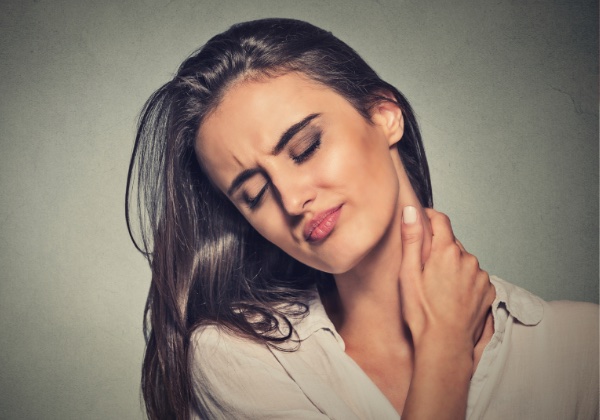Fasting and its Top 3 Benefits

We can all agree that the average Canadian diet consists of 3 meals a day with a bunch of snacks in between. We also know for the most part that the government of Canada provides guidelines as to what the healthiest portions of each food group should be for a meal, including meats, veggies/fruits, dairy products, and grains. And I’m pretty sure everyone has heard the saying that you should never skip breakfast because it is the most important meal of the day. Eating, eating, and more eating is all I’ve purposefully been talking about so far. People are generally aware of what to eat to improve their health, but are either never concerned with or are just confused about when and how frequently they should eat. We never hear about fasting as part of our “diet”, not in mainstream media at least. Of course there are many reasons as to why this may be, but it all stems from the fact we are programmed to believe we need to constantly eat food in order to maintain our health. I’m here to explain why that’s not always the case.
Fasting is not so much an action, rather it is the effort to refrain from food, drink, or both for an extended period of time. There can be a number of reasons why people fast, but the two predominant reasons are heightened spirituality and improved health. Regardless, it still seems absurd to a lot of people. For example, many people find it strange that I would “starve” myself for 18 hours during long summer days but what they don’t realize is that they are making assumptions about what they deem as healthy eating habits. In fact where did they come up with such assumptions? Two industries that benefit from people eating all the time are the Food and Pharmaceutical industries. Billions of dollars are funneled through these major industries, so it would only make sense that they can sway public health opinion about eating more food. They will certainly never advertise fasting as a healthy alternative, it just wouldn’t make financial sense for them to do so. The more food people eat and the sicker they get as a result, the more money these two industries make through the sale of food and drugs. People also fall under the assumption that feeling hungry is unhealthy for the body and must always be addressed by eating food. This is also untrue. Surprisingly, hunger signals are adapted to what the body is accustomed to in terms of your eating schedule. Yes, simply reducing your eating frequency is hard initially and may cause you to subjectively feel less energetic and more irritable. However, as your body adapts to a decline in food, it will also adapt its hunger signalling pathways so your subjective feelings of hunger matches your new eating schedule. This means you won’t feel as hungry with less food as you used to. There are so many benefits to fasting that I could spend days writing about it. Instead of doing that, I will stick to just three. So without further ado, here are my top 3 benefits for fasting:
- Improved Brain Function
The benefit of improved brain function was actually discovered unintentionally. A very common model animal used in laboratory experiments is the mouse. Periodically, experimenters restrict food to mice as a protocol to ensure their stomach contents are not affecting test results. However, what they noticed over time is that the lifespan of these mice (and other lab animals) would extend by as much as 30% when their energy intake was reduced. This discovery lead to further research about energy restriction (i.e. reduced food intake) in laboratory animals which concluded that fasting improves brain health and function. Just like exercise is a good stress-challenge to your body, fasting is a good stress-challenge to the brain. Fasting causes the brain to cope with reduced energy intake by activating stress response pathways that lead to the production of neurotrophic factors, a group of proteins involved in the development and maintenance of brain cells called neurons. They do this by promoting the growth of synapses (connections between neurons), improving the energy output of the neurons, and repairing their DNA. It is safe to assume then that individuals with incredible minds like Plato, Aristotle, Ghandi, Hippocrates, and many more were onto something when they advocated for fasting to improve mental and physical health. Interestingly enough, evolutionary theorists also propose an idea as to why fasting might actually provide a selective advantage. Mammals must constantly find food to survive. This involves understanding what food they can eat, where they can look for the food, and how they can attain it. The longer they go on without food, the more imperative it is that they find the food. The evolutionary link is that mammals evolved a brain that works better under a fasted state in order to improve survivability. Extended periods of time without food equips their mind with the mental resources to give them a better chance of finding food. This means that mammals have been benefiting from fasting for millions of years, go figure.
- A Healthier Digestive System
Another essential benefit of fasting is that it gives the digestive system a break. Digestion is a bodily process that consumes a lot of energy, making this system highly dependent on the body’s energy resources. Refraining from food puts your digestive system on a vacation and allows your body to focus more attention on other regenerative duties such as removing toxins, improving metabolic efficiency, bolstering immune function, etc. It also gives your pancreas a rest because it does not need to release as much insulin from sugar intake. This helps improve insulin sensitivity, something that is crucial in maintaining metabolic health and preventing type 2 diabetes. Most of the toxins that come into the body are from what we consume on a daily basis. Think about all the pollutants, pesticides, genetically modified ingredients, preservatives, artificial flavourings, and chemicals that go into our food. Sadly it is hard to avoid such chemicals since anything that we eat nowadays contains a combination of these. Realistically, one of the only ways to reduce the amount of toxins you receive from food is to reduce your eating frequency. This is why some people go on extended fasts for days with only water. It is a naturally way to detoxify the body and remove stored chemicals that impinge on the body’s ability to function properly. Putting the digestive system on a break also relieves the body of oxidative stress from free radicals. Free radicals are highly reactive chemicals that are normally produced in the body to aid in digestion for tasks like the conversion of food into metabolic energy. They are able to do this because their reactivity allows them to break down anything from a protein molecule to a whole cell into metabolites. However, they become dangerous when too many of them are produced because they can begin damaging other proteins and cells that are not meant to be metabolized. Eating a lot, especially food filled with toxins is one way that causes the body to produce too many free radicals. Again, a good way to prevent the destructive effects of these free radicals is to reduce your food intake by fasting because this stops them from accumulating in your digestive system.
- An Effective Way to Lose Body Fat
Want a great way to lose excess body fat? Fasting can also be used to slim down if you understand when to exercise during your fast. Your body runs off of two types of fuels that are stored: Glycogen and Fatty Acids. How much of each type of fuel your body uses depends on a few things. Glycogen is a fuel that is used more predominately for fast bursts of movement since it can provide more energy in a smaller amount of time. Fatty acids on the other hand come into play for longer bouts of movement, and are a more efficient source of energy in the long run. Similarly, higher intensities of exercise will cause your body to turn to glycogen for fuel, and fat as fuel for lower intensities of exercise. Fasting also affects which fuels your body will burn over time. Once you begin a fast, your body will still have readily available glycogen that it can use for exercise. However, after fasting for about 10-12 hours, your body’s glycogen becomes depleted and exercise will cause you to rely more heavily on burning fat for energy as opposed to glycogen. This offers you a valuable window of opportunity to schedule your exercise so you can put your body into fat burning mode and shred excess body fat!
So there you have it folks, fasting is very good for your health. For more information about how to fast and the benefits of fasting, feel free to contact Konga Fitness. We are here to spread the word about healthy living, one blog at a time!












